#Industry
Stellantis CEO Thinks EVs Are Too Troublesome
Stellantis CEO Carlos Tavares has said that the growing pressures being placed on automakers to shift toward electric-vehicle production are unsustainable and run the risk of the public getting subpar products at decidedly higher price tags. While we’ve seen automotive executives lambast new energy vehicles before, it’s grown rarer as governments around the world have continued incentivizing their existence and investors have been pouring money on startups delivering literally nothing more than the mere suggestion of more electrification.
Tavares’s words come from the Reuters Next conference, running counter to the event’s prevailing narrative of encouraging technological progress and social change. Attendees tend to be political officials, heads of finance, NGO leaders, and business executives sympathetic to the cause. But the Stellantis CEO definitely went off-script when he listed some of the shortcomings of electrification, adding that he felt the costs were “beyond the limits” of what was realistically feasible. It’s his belief that pursuing electrification at the current pace doesn’t take into account the larger financial picture.
Report: Biden Admin May Link Semiconductor Subsidies to Unions
Despite the semiconductor shortage having encouraged the automotive sector to repeatedly idle factories, word on the ground is that things are becoming more stable. Companies are seeing less production downtime overall and workers are reporting more reliable working conditions across the board. However, several automakers have continued to express concerns (e.g. Volvo), alleging that chip shortages could stretch deep into 2022, while the U.S. government ponders how to advance chip production in-country and become less dependent on Asian suppliers.
Commerce Secretary Gina Raimondo has been touring Michigan, meeting with union members and industry heads, and plans to urge Congress to move on a $52 billion in funding bill aimed at boosting domestic production. We’ve questioned the efficacy of the CHIPS Act before, primarily in relation to how the subsidies would be allocated. But there are new concerns that the plan will mimic the Biden administration’s EV subsidies by spending heaps of taxpayer money and giving union-backed organizations a larger cut.
Study Suggests Time Plays Important Factor in Repair Costs for EVs Vs ICEs
Since the hottest news surrounding the automotive industry today happens to be rolling updates about supply shortages, factory downtime, and how it’s not impacting manufacturing profits as much as anticipated, I’ve been diving back into studies and research pertaining to the future of the automotive industry. It’s a little more enjoyable for my own gray matter to process and might provide readers with a touch more to ponder than another story about how automakers are stalling production because an insufficient number of doodads were placed on a boat that’s waiting off the California coastline.
Earlier this week, we examined research exploring how much electric vehicles actually cost to run and that theme will persist. There’s a new study suggesting EVs boast lower repair bills than gasoline-driven alternatives. But there’s an interesting tipping point that occurs early in a vehicle’s lifespan that makes it happen. Before that, it’s cheaper on average to maintain something equipped with an internal combustion engine.
Study: Do EVs Really Cost Less to Run Than Internal Combustion Cars?
With the volume having been turned down on just about every business sector imaginable, automakers have spent most of this year explaining how supply chain shortages are impacting production and making promises about electric vehicles. However, the rhetoric surrounding electrification has gotten so aggressive that it’s fast becoming another contentious issue, leading to vicious arguments as people square up to take sides. Part of this is due to the enterprising way in which zero-emission vehicles are being marketed and subsequently embraced by world leaders that don’t know jack about the manufacturing or the environment. Much of the discourse surrounding electrification (pro or con) lacks nuance and leads to businesses promising whatever they can in an effort to obtain your unquestioning belief.
For example, EVs are frequently promoted as boasting substantially lower operating costs due to there being no reliance on liquid fuel. Though finding the truth actually requires one to make a comparative analysis while taking into account how, where, and what you’re driving. There’s even a new study out from the Anderson Economic Group (AEG) attempting to determine the true savings of swapping to an EV where the researchers ultimately decided gasoline-powered cars were actually easier on the wallet. However, that likewise requires loads of clarifying context and conditional factors.
Ford, GM Earnings Reports Will Tell the Chip Shortage Tale
Ford and General Motors are both slated to show their third-quarter earnings reports on Thursday.
Reports suggest that despite the negative impacts of the global semiconductor chip shortage, there may be positives for the companies, as well.
Rain or Shine: AAA Finds Out Advanced Driving Aids Still Suck
A new study from the American Automobile Association (AAA) has found that rain can severely impair advanced driver-assistance systems (ADAS). Similar to how highway traffic slows to a crawl when there’s a sudden deluge, modern safety equipment can have real trouble performing when a drizzle becomes a downpour.
On Thursday, the motor club organization released findings from closed-course testing that appeared to indicate some assistance suites had real trouble seeing through bad weather. AAA reported that 33 percent of test vehicles equipped with automatic emergency braking traveling collided with a stopped car when exposed to simulated rainfall at 35 mph. The numbers for automatic lane-keeping was worse, with 69 percent drifting outside the lines. Considering the number of times the people writing for this website have anecdotally criticized ADAS for misbehaving in snow, sleet, rain, fog, or just from an automobile being a little too dirty, it’s hard not to feel a little vindicated.
'Made in America Auto Index' Gives Ford Mustang GT the Crown
Annual automotive-content indexes have grown in popularity since trade restrictions and tariffs have become increasingly relevant issues. But they’re usually pretty generic, often providing the broad strokes of product origin while placing a few cars housing the most regional content on a pedestal. Not so with the Kogod School of Business’ 2021 Made in America Auto Index. While the metrics used are a little different from what’s found elsewhere, it offers a more comprehensive data set than other catalogs.
Though most people still like to know which vehicles were dubbed the “most American” and Kogod’s percentage-based scoring system makes it pretty easy to figure out. We won’t leave you hanging. For the 2021 model year, the Ford Mustang GT was evaluated as the car boasting the highest level of North American hardware and labor. But you have to get a manual transmission for the necessary 88.5 percent total domestic content rating (TDC). Select the automatic and that number drops to 51 percent, which is still better than the Mustang Mach-E’s paltry 15-percent score.
UK Vehicle Registrations Fall Into Bottomless Pit
Despite manufacturers still managing to turn a profit, the automotive sector hasn’t been in the best of health these last few years. Growth appears to have plateaued in most Western nations, encouraging companies to cater this business toward other markets, supply chains have also been negatively impacted by the pandemic — with semiconductor shortages hindering production schedules on a scale we’ve not seen since the Great Recession.
It’s a bad situation and rumored to get worse if the warning cries of economists are to be believed. But there’s also mounting evidence to support their claims. The Society of Motor Manufacturers and Traders (SMMT) recently reported that vehicle registrations in the United Kingdom fell by roughly 35 percent in September vs the same timeframe in 2020. This is relevant because the month typically represents the second-busiest period for the country and numbers were already low due to production stops created by coronavirus lockdowns.
Cadillac Launching New Corporate Logo With Lyriq
There’s a new automotive trend afoot, one where industry giants alter their iconic corporate logos so they’ll play better in a digital environment. Shadows and color gradients designed to give an image depth don’t always pop on a cheap screen the way they might on the glossy piece of paper and have encouraged manufacturers to transmission to flat, monochromatic icons that look bad everywhere.
But consistency isn’t the only reason to change logos. It’s also an opportunity to signal to customers that you’re evolving as a brand, which is why so many companies have associated their new iconography with the pivot toward electric vehicles. General Motors, recently ditched the logo it’s been using (more or less) unchanged since 1964 for a Bizarro World alternative that swaps the color pallet and makes the letters lowercase. Now it’s modernizing the emblem to be used for Cadillac’s electrified products until they gradually supplant the entire lineup.
Volvo Announces IPO, Polestar Does SPAC Merger
Volvo Cars has confirmed months of speculation by announcing that it’s planning to go public on NASDAQ Stockholm. On Monday, the automaker stated that it would be seeking to raise 25 billion Swedish kronor (nearly $2.9 billion USD) via the selling of new shares as a way to fast-track its electrification plans. Those include ensuring half its annual volume being represented by EVs and transitioning the majority of its sales stemming from online orders by 2025.
While the targeted IPO valuation is unknown, prior information coming from Zhejiang Geely Holding Group (Volvo’s Chinese parent company) suggested it was aiming for something in the neighborhood of $20 billion. We’ve also learned that the collaboratively owned Polestar would also be going public, except it will be using the always sketchy special-purpose-acquisition-company merger to help pump the stock.
Will Chip Shortage Dethrone GM's Sales Dominance?
Ninety years. That’s the amount of time that General Motors has led the sales charts in the U.S.
That may change this year, according to industry bible Automotive News, because of the ongoing microchip shortage.
Lucid Motors Becomes an Automaker
Production of the 2022 Lucid Air started this week, adding another automaker to the North American roster. The manufacturer held an event on September 28th, inviting Arizona Governor Doug Ducey, relevant executives, big-time investors, select media outlets, and customers who dropped $170,000 to purchase the limited Dream Edition of the electric vehicle.
While often framed as a Tesla ripoff, Lucid Motors has been setting its sights so high that it hardly feels like a fair assessment. Because the Air is offering one of the most impressive all-electric spec sheets in the industry right now and should probably worry the competition.
Automakers Accused of Chip Hoarding, U.S. Considers Defense Production Act
Despite the occasional media report claiming that the semiconductor shortage is nearly over, reality looks quite a bit different. Some manufacturers have managed to temporarily stabilize supply chains, even though others have continued announcing work stoppages as they run out of chips. Wait times for the electronic components have also increased by about 61 percent since the beginning of 2021. Meanwhile, a recent Kelly Blue Book survey had 48 percent of respondents saying they were going to postpone buying a new automobile until shortages end, prices come down, and they can actually find the vehicles they’re looking for. But even those that were willing to buy now expressed a surprising level of acceptance to abandon brand loyalty or their preferred body style just to get a fairer deal on an automobile.
With the United States fairing worse than other regions in regard to chip availability, the White House has been under pressure to solve the problem all year. Thus far, government strategy has focused on encouraging investments for new semiconductor production. But there’s a new gambit being proposed that would invoke a Cold War-era national security law that would force manufacturers to furnish information pertaining to semiconductor supply lines and chip sales.
Kia Embraces At-Home Test Drives
With various government and corporate entities pushing rolling restrictions to our everyday lives, the automotive sector has gotten extremely creative in how it does businesses over the last nineteen months. Everything is being digitized so business can be conducted remotely, including sales. But this creates an issue for shoppers who — and this is going to sound crazy — actually want to see and familiarize themselves with one of the largest purchasing decisions they’re likely to make this year before committing.
Luxury brands were already testing at-home test drives and subscription-based vehicle exchange programs by the start of 2020. But we’re now seeing more pedestrian brands trying similar strategies to reach customers from beyond the confines of the dealership. Kia even recently announced a pilot program to sync digital sales with at-home test drives. Called “Kia@Home,” the service allows shoppers to schedule a vehicle to be sent to their home for an hour-long assessment.
Opinion: Automakers Reinstating Nationwide Mask Mandates Is a Mistake
Detroit automakers and the UAW have elected to reinstitute national masking mandates for all of their facilities, starting Wednesday. General Motors, Ford, and Stellantis have issued a joint announcement clarifying that the rules are in accordance with the updated guidance from the Centers for Disease Control and Prevention (CDC) recommending masks be worn by all persons regardless of their vaccination status.
Based upon the text included in the release, the industry seems aware that the decision will be unpopular and is doing its utmost to transition responsibility without absolving itself entirely.




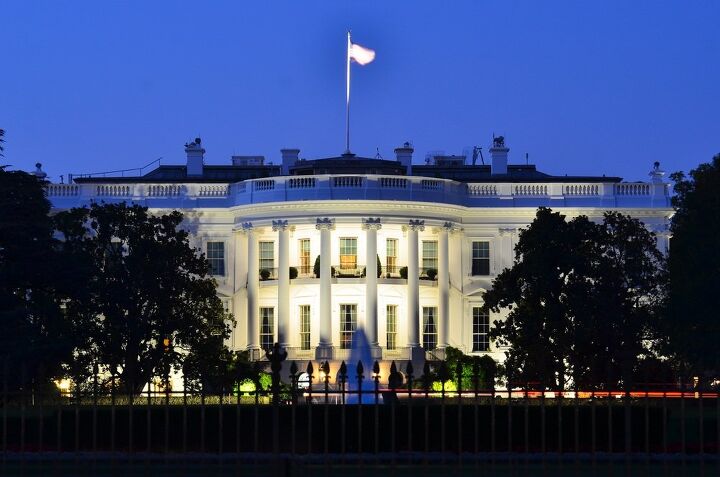
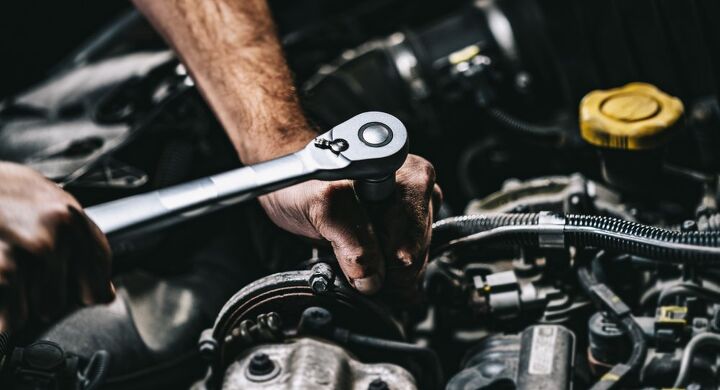

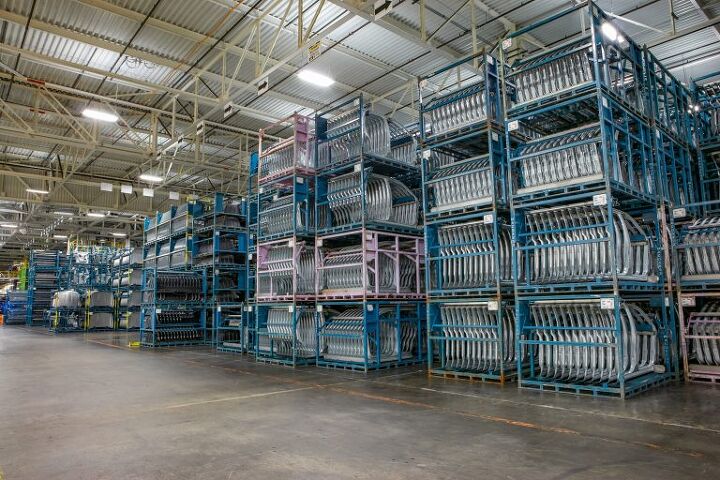
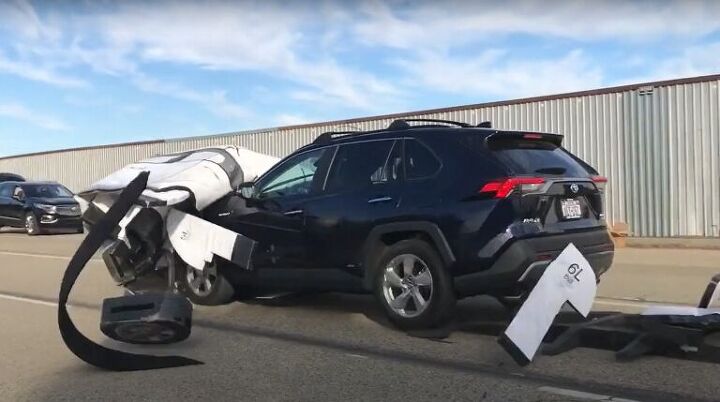



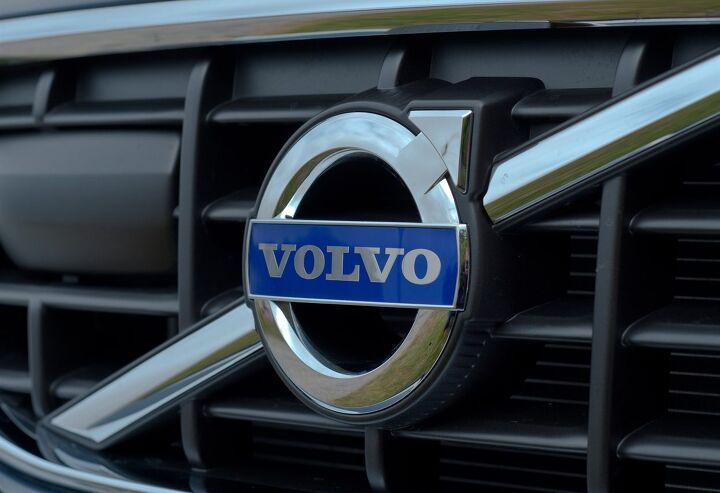
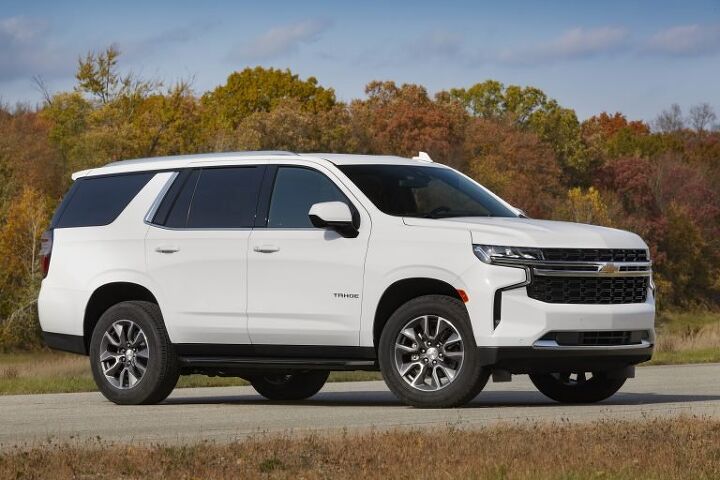
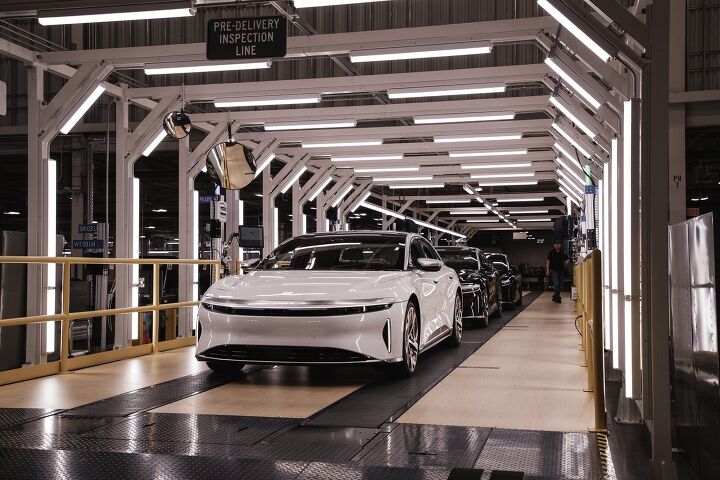














Recent Comments